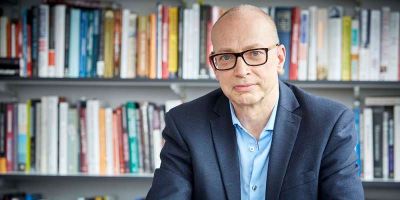Alumna shares her experience of dissertation pilot scheme
MA Global Development alumna and 2018 dissertation prize winner Elizabeth Goolden has written about her experience taking part in the School’s 'dissertation partnership pathway' pilot scheme.
The dissertation partnership pathway is a pilot scheme available to current Masters students in the School of Politics and International Studies. Current students interested in the pathway should contact Dr Lata Narayanaswamy.
Read about Elizabeth’s experience below:
From Leeds to Colorado Springs – an article by Elizabeth Goolden
This time last year seems a bit of a blur…I was completely engrossed in writing, with one goal in mind, to finish my dissertation and do my research and myself justice. I had absolutely no idea how far this piece of writing would take me and that I would still be talking, writing and presenting about it now, a year on.
I completed the MA Global Development in the School of Politics and International Studies. I was attracted to this particular Masters programme because it was international development framed explicitly as political. Studying BSc Psychology during my undergraduate degree, I had developed a strong people-oriented focus and was keen to understand more about the interaction of people and politics within the theory and practice of Global Development. I particularly engaged with my Gender modules, which led to my choice to focus on a gender related issue for my dissertation.
The year soon flew by and it finally got to the point in the year with the BIG DECISION…what am I going to research for my dissertation?!?
Keeping up with all things gender related, I had read a few articles and watched a couple of Ted Talks about barriers women and girls in the Global South face due to menstruation. I became more and more interested in the issue and decided this may be a good research basis for my dissertation – but I had a really strong sense that my research should be meaningful, relevant and more than just about the grade that I would achieve. This is when I came across the Dissertation Partnership Pathway, a pilot scheme organised by Dr Lata Narayanaswamy. The pathway enabled MA students on my course to be connected with an external charity or NGO so the student could work with the organisation and conduct research that would be mutually beneficial. I thought ‘YES!’ this is how I can ensure I will write something meaningful and be of use to an organisation (which also definitely helped keep me motivated to carry on through the final gruelling write up I mentioned at the start!) I was amazed to see on the list of organisations already willing to partner with POLIS, one specific charity called Irise International. Irise is a charity working within the UK and Uganda to support young people and their communities to address menstruation-related barriers. This partnership felt absolutely perfect for me so I applied and thankfully got the place!
Partnering with Irise International really solidified the direction of my research. Having so many ideas, Emily, CEO of Irise, was able to talk me through the current goals of the charity and helped to refine my ideas. This communication at the beginning was extremely useful to ensure my research was both interesting for me and useful to Irise.
I liked the fact that Irise had a unique position, working with communities both in the UK and Uganda. Through conducting a literature review I found that there were no studies to date comparing menstrual health across lower and higher income contexts. I therefore used Irise’s unique position to compare girls in the UK and Uganda. Working with Irise also meant I was able to utilise their contacts in Uganda, conducting interviews with many of their Irise Uganda team.
Conducting interviews with key informants was the part I found the most enjoyable. Since my interviews were semi-structured I was able to have great, in-depth discussions with some amazing researchers, activists and medical practitioners and gather a large amount of rich data.
In contrast to what much of the literature had conveyed on this topic until now, I found that many narratives surrounding menstrual stigma within the UK and Uganda were very similar, despite one being respectively labelled as the ‘Global North’ or ‘developed’ and the ‘Global South’ or ‘developing’.
My passion for this topic, and drive to ensure this work would be useful for Irise, really paid off when I was recognised by the School for the highest mark awarded for the MA dissertation.
However, it was presenting my research to Irise International that really sparked my success and opened the door for opportunities within this area. The charity completely took on board my research and suggestions, which informed their new strategy and approach. This led me to getting further involved with the charity and I now volunteer on their Advocacy Committee as their Projects and Fundraising Officer. Through Irise and my research I have also been able to make many connections with menstrual health researchers, activists and practitioners across the UK. I have written a number of blogs for various menstrual health sites and have further presented my research at various events and conferences. My biggest achievement to date has been presenting my research at the Society of Menstrual Cycle Research Biennial Conference in Colorado Springs in June 2019. The conference was 3.5 days of activism, empowerment and knowledge sharing and I feel so proud to have been part of it to both share my research and learn from others at the top of this field.
I am currently working towards producing an article to publish from this research to ensure it can reach and be read by more people. I am continuing to be a key member of Irise’s advocacy committee, networking in the field and presenting my research. I hope to continue to progress and eventually work within this space in the future.




